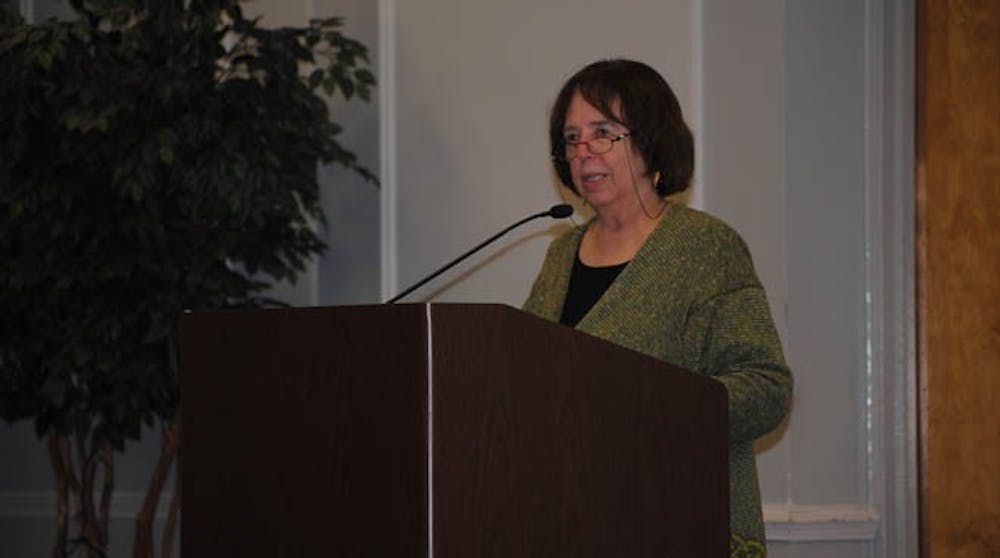Children's poetry does not always have to rhyme with a sing-song rhythm and be about a child's life, author and poet Jane Yolen said in a speech Monday night at the University of Richmond.
Poems were used as codes during World War II in the French underground resistance movement, she said.
"In fact, I think poems are coded messages of fact and emotion," she said. "Poems - whether funny or serious, short or long, nonsense or full of sense - change the course of a child's growing most thoroughly as the [poems] changed the course of history.
"That is because poetry learned early stays with a reader for the rest of his or her life."
Children can sometimes understand the meaning of poems much more quickly than adults, she said. Adults come into poetry with preconceived notions about the topics being discussed and sometimes do not get as much out of it, she said.
"You must have the mindset of a child reader and then you will get the most out of [a poem]," she said.
Yolen has written more than 300 books in different genres, including children's books, science fiction, fantasy and poetry. She is also a teacher and reviews literature. She is the author of the famous "How Do Dinosaurs ..." series of books and the children's book "Owl Moon."
She gave a few suggestions about how to improve as a writer, such as writing every day. Just as athletes practice, writers must practice to improve, she said.
She used some of her poems to show how they were revised during the writing process. The poem "Pegasus, The Flying Horse" focuses on life in a concentration camp. It took days of revision to complete the poem, she said. She discussed changing a line about not "talking" to Nazi soldiers, to not "arguing" with Nazi soldiers.
"It was not simple substitutions," she said. "It included rethinking each line, understanding the difference between the words 'talking' and 'arguing,' the politics of the time. It meant envisioning, seeing again, the consequences of wearing the yellow star."
Sophomore Caitlin Jones attended the speech for her creative writing class and said the most interesting thing she had learned was that children could sometimes understand poems better than adults.
The speech was part of the English department's Writers Series and was the 2009 Cathleen Mallaney Trees Lecture.
Enjoy what you're reading?
Signup for our newsletter
Contact reporter Stephen Utz at stephen.utz@richmond.edu
Support independent student media
You can make a tax-deductible donation by clicking the button below, which takes you to our secure PayPal account. The page is set up to receive contributions in whatever amount you designate. We look forward to using the money we raise to further our mission of providing honest and accurate information to students, faculty, staff, alumni and others in the general public.
Donate Now



